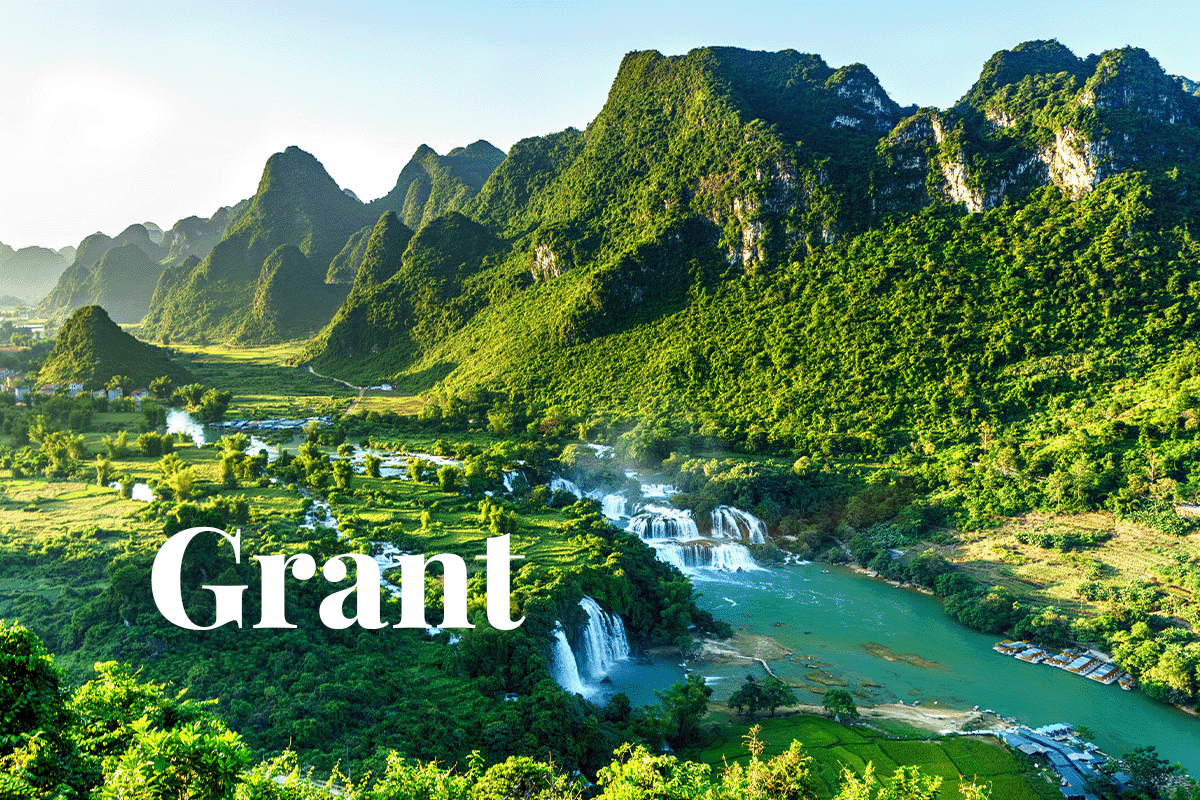Vietnam has successfully obtained $41 million from the World Bank to sell forest carbon credits, marking a pivotal step in its commitment to protect its natural environment. This substantial funding comprises 80% of the total amount agreed upon in the Emission Reductions Payment Agreement (ERPA).
 Aerial view of Ban Gioc Waterfall, Cao Bằng, Vietnam.
Aerial view of Ban Gioc Waterfall, Cao Bằng, Vietnam.
The ERPA, established in October 2020 between Vietnam and the World Bank's Forest Carbon Partnership Facility, outlines that Vietnam could potentially receive up to $51.5 million by reducing 10.3 million tonnes of CO2 emissions from six north-central provinces. Vietnam plans to transfer 10.3 million tonnes to the World Bank at a rate of $5 per tonne, with 95% of this sum contributing to its Nationally Determined Contributions (NDCs).
The Forestry Department, overseen by the Ministry of Agriculture and Rural Development (MARD), hosted a workshop in Hanoi to announce this financial infusion. According to Tran Quang Bao, the director of the Forestry Department, the World Bank's contribution stems from efforts to address Vietnam's CO2 emissions.
Read more: Indonesia's carbon market debut furthers net-zero goals
This agreement aligns with Vietnam's inaugural regional-level Reducing Emissions from Deforestation and Forest Degradation (REDD+) initiative, targeting a significant reduction of 32.09 million tonnes of carbon, encompassing both emissions reduction and forest carbon sequestration.
Between 2019 and 2024, ERPA aspires to curtail 26 million tonnes of carbon, while the World Bank commits to acquiring 10.3 million tonnes of CO2 equivalent credits, amounting to $51.5 million.
Vietnam's environmental commitment extends beyond its borders, as it strives to reduce emissions by 15.8%, equivalent to 146 million tonnes of CO2, with prospects for a more ambitious goal of 43.5% and 403 million tonnes through international cooperation.
Read more: Carbon pricing: global solutions for a global challenge
As a signatory of the Paris Agreement in 2015 and an advocate of the Glasgow Leaders' Declaration on Forests and Land Use, Vietnam continues to demonstrate its continued dedication to the global efforts made for a healthier planet.
Vietnam’s North Central Region Emission Reductions Programme is part of the country’s effort to meet the Paris Agreement goals, spanning from 2018 to 2025, encompassing six provinces, and representing a critical region for biodiversity conservation. Covering an area of 5.15 million hectares and a population of 10.5 million, this initiative safeguards precious broadleaf evergreen forests with worldwide significance.
DGB Group firmly believes that sustained, meaningful environmental progress can only be achieved through collaborative efforts across various decision-making tiers. DGB actively engages with a diverse array of collaborators, encompassing governmental entities and local communities, to create impactful, large-scale initiatives with a profound focus on nature. These initiatives are meticulously crafted to rejuvenate the environment and empower communities through sustainable development, ultimately playing a pivotal role in restoring diverse ecosystems and rehabilitating vital habitats.
Take the vital steps for nature today



